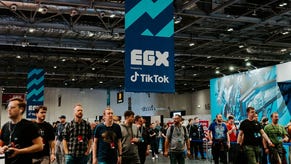D.I.C.E. 08: Build or Buy? The Insomniac View
Developers took to the stage at D.I.C.E. Summit 2008 to argue the merits of building or buying game technology, with the battlelines being drawn between Insomniac on one side, Epic Games on the other, and Ubisoft stuck in the middle.
"It should come as no surprise to anybody that Insomniac takes the position that you should invest and build your own engine technology," said Mike Acton, Insomniac's engine director, as he began to explain that he saw building tech as an investment in the company, and most importantly, in that company's people.
He went on to tell the audience that he frequently hears many justifications from developers who decide to buy their technology, such as the claim that it would then allow them to concentrate more on gameplay, without having to concentrate on core technology.
But he disagrees: "To be straightforward, generally that is a complete crock of shit," he said. "Usually, instead of concentrating on the core tech, you concentrate on how to use someone else's core-tech."
Another claim, he said, is that the game development will be faster using middleware, but Acton noted that Insomniac, a small developer who has built its own tech, will already be three games into the current generation at the end of this year.
He suggested that developers ask Silicon Knights and Midway if it is faster to use someone else's engine — a veiled reference to those companies allegedly having difficulty with the Unreal engine.
As far as costs are concerned, Acton said that you need a strong team and strong people to create your own technology — and can't imagine that anyone would think such an investment is a bad thing.
To him, building your own tech isn't just about you thinking you can do it better than anyone else. It is about responsibility.
"Whose bottom line is affected? Who will the media and players blame if there are problems with your game?" Action asked. "Not the middleware vendor."
"At the end of the day, the middleware company makes money in this scenario whether or not your game does well; whether or not their engine works well."
Acton acknowledged that all developers use some middleware to a certain extent — Maya, for example — but when and how does a company choose?
"Invest internally anywhere that it's a value to your games and products that you have that technology, so it can be better for your games and your products," he said.
Andy Burke, the tool group lead at Insomniac Games, noted that companies often don't want to take the risk of developing their own tech. But off-the-shelf things never just quite "drop in" to a product.
"Third-party tech can reduce your costs, but it will not eliminate your costs. It will almost always take more investment than you think it will."
In the end, he said, it's important to be realistic about the potential cost savings seen from third-party software. While the tech may have worked for that company to make their own game, it might not work for you unless you are making a substantially similar game.
As your game differentiates itself from the tech the middleware company was using to develop their game, your costs and risks are going to go up
"In the end, it is your ship date that matters. You need to think carefully about the impact of the use of third-party software and what it means about your ability to get your game out on time."







